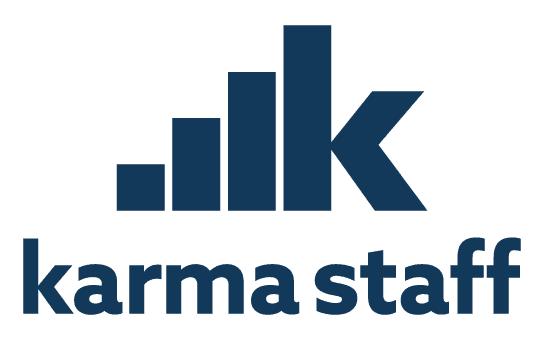Managing your business finances has changed dramatically in recent years. Once dominated by endless paperwork and in-house accountants, bookkeeping has now gone digital. Thanks to new technologies and virtual services, businesses in 2025 are turning to remote bookkeeping solutions to simplify, secure, and supercharge their financial management.
In this blog, we’ll walk you through why virtual bookkeeping is no longer just an option but a smart move for business owners who want to stay ahead.
Why Remote Bookkeeping Is the Future of Finance
Gone are the days when managing your books required hiring a full-time staff member or maintaining paper-based ledgers. Remote bookkeeping positions offer businesses the flexibility to access their financial data from anywhere while tapping into a pool of experienced bookkeepers without the heavy overhead costs.
In today’s digital-first world, businesses need quick access to real-time financial data, proactive support, and scalable solutions. Remote bookkeeping and accounting meet all these demands, allowing business owners to focus more on growing their companies rather than getting lost in spreadsheets.
The benefits extend beyond convenience. Online bookkeeping represents a new way of thinking: agile, secure, and built for the fast-moving pace of modern business.
How Remote Bookkeepers Solutions Work Their Magic
You might wonder how a bookkeeper, operating miles away, can stay on top of your finances better than someone sitting right in your office. The secret lies in powerful cloud tools, encrypted communications, and streamlined workflows.
Remote bookkeepers typically connect to your accounting software through secure portals. They handle transaction categorization, bank reconciliations, invoice processing, and payroll, often using automated workflows to eliminate manual errors and save time.
Some remote bookkeeping solutions even go beyond basic tasks by offering virtual CFO consultations, helping you with forecasting, budgeting, and strategic financial planning. It’s like having an entire financial department without a hefty price tag.
5 Stats on Remote Financial Management
The shift toward cloud-based bookkeeping isn’t just a passing phase, it’s part of a larger, data-backed transformation reshaping the accounting world.
- 67% of accountants prefer cloud accounting, believing it enhances business success.
- 53% of accountants have already adopted cloud-based practice management solutions to improve client communication and project management
- 91% of professionals say technology allows them to focus more on clients or boosts productivity.
- 57% emphasize technology literacy as the primary additional skill required for modern accountants.
These findings from Sage clearly show that remote bookkeeping solutions aren’t just about cutting costs; they’re about building smarter, faster, and more client-focused financial operations. Businesses that embrace these tools are setting themselves up for a stronger, more competitive future.
Top Tools That Power Remote Bookkeeping Today
Modern remote bookkeeping solutions are built on a foundation of powerful technology. The right stack of software ensures speed, accuracy, and security.
Some of the leading tools used by remote bookkeepers include:
- QuickBooks Online: A gold standard for small business cloud accounting.
- Xero: A favorite among startups and growing businesses for its simplicity and integrations.
- FreshBooks: Perfect for freelancers and service-based entrepreneurs.
- Gusto: Automates payroll and employee benefits.
- Hubdoc: Collects and organizes receipts, bills, and bank statements for easy access.
- Zapier: Connects different apps to automate workflows seamlessly.
These tools not only simplify bookkeeping tasks but also help businesses maintain real-time financial visibility.
Benefits of Remote Bookkeeping Solutions

Making the switch to remote bookkeeping and accounting isn’t just about staying trendy; it’s about unlocking real business advantages.
With remote bookkeeping, you can:
- Save time by automating repetitive tasks.
- Reduce costs by paying only for the services you actually need.
- Access top talent without location barriers.
- Make smarter decisions based on real-time financial insights.
- Scale effortlessly as your business grows.
- Protect sensitive information with state-of-the-art cybersecurity measures.
When implemented right, remote bookkeeping solutions become more than just a back-office task; they become a strategic asset for business growth.
How to Choose the Right Remote Bookkeeping Partner
Choosing the right remote bookkeeping and accounting service can be the difference between financial clarity and chaos. Not all providers are the same, and it’s crucial to vet them carefully to find the right fit for your business. Here’s where a few key questions can make all the difference.
10 Must-Ask Questions Before Signing Up
Before you commit, ask potential providers:
- What industries do you specialize in?
- Which bookkeeping platforms do you work with?
- How do you protect client data and ensure compliance?
- What exactly is included in your service packages?
- How frequently will you update my financial records?
- Will I have a dedicated bookkeeper or a rotating team?
- Can you integrate with my current tech stack?
- What is your average response time for client queries?
- Do you offer support during tax season?
- How do you scale services if my business grows?
These questions will help you spot a true partner rather than just another vendor.
5 Signs You Should Make the Switch Today
Still on the fence? Here are five unmistakable signs it’s time to move to remote bookkeeping:
- You’re spending more time on financial admin than business strategy.
- Your books are always behind schedule.
- Tax season fills you with dread and hefty penalties.
- You can’t justify the cost of full-time accounting staff.
- You want instant access to your financial data wherever you are.
If even one of these sounds familiar, it’s time to rethink your bookkeeping setup.
Final Thoughts
Remote bookkeeping solutions are no longer a futuristic concept; it’s the reality of smart business management in 2025. By embracing digital bookkeeping solutions today, you can simplify operations, gain financial clarity, and position your business for long-term success.
Choosing the right partner, asking the right questions, and making sure your systems are aligned can transform your financial management from a necessary task into a powerful growth tool.







